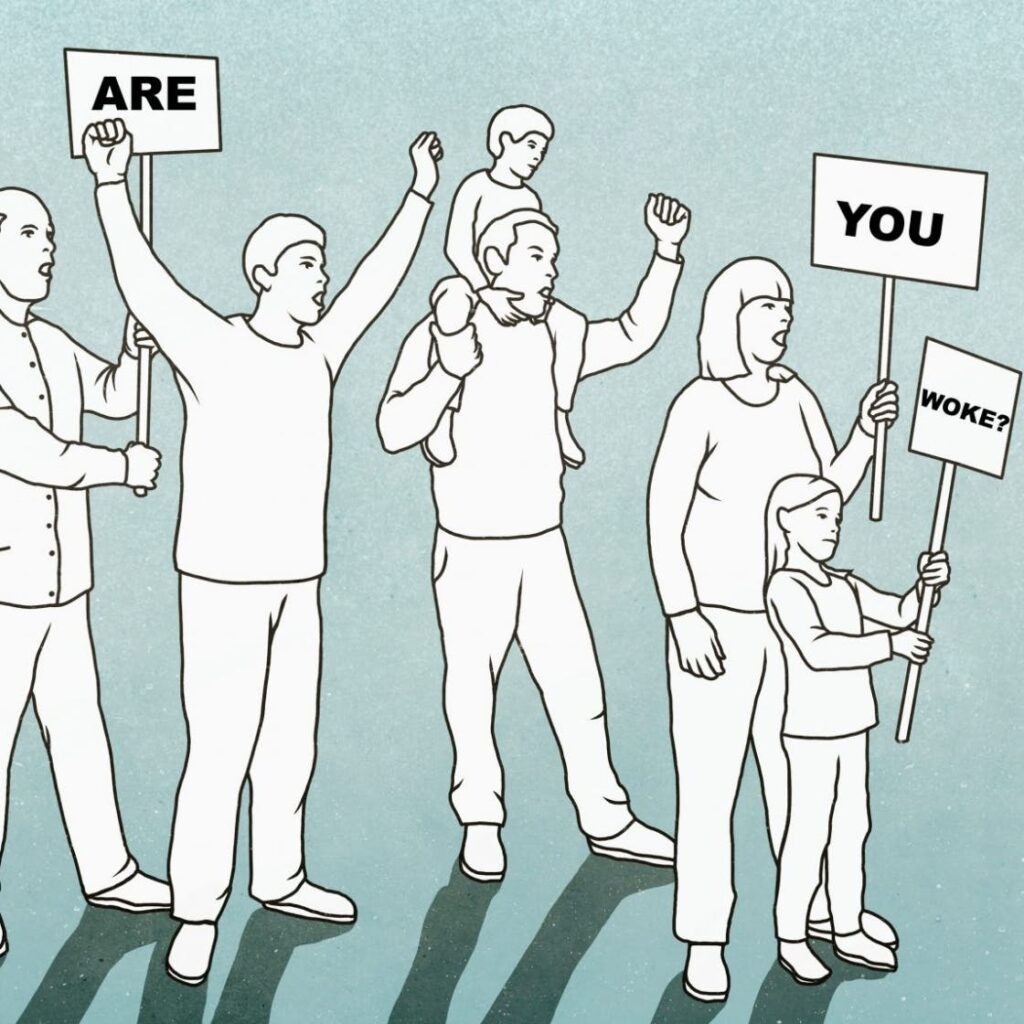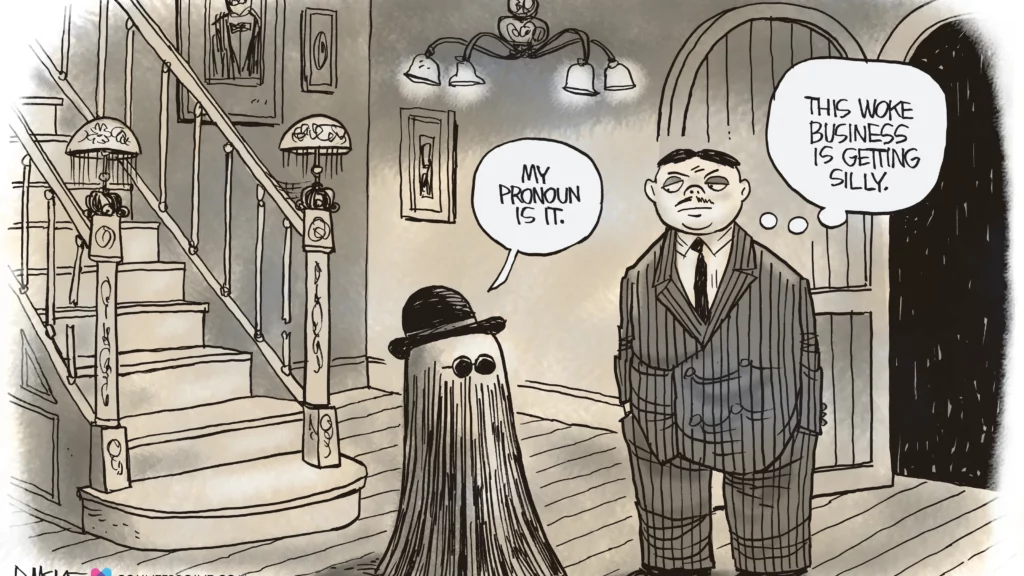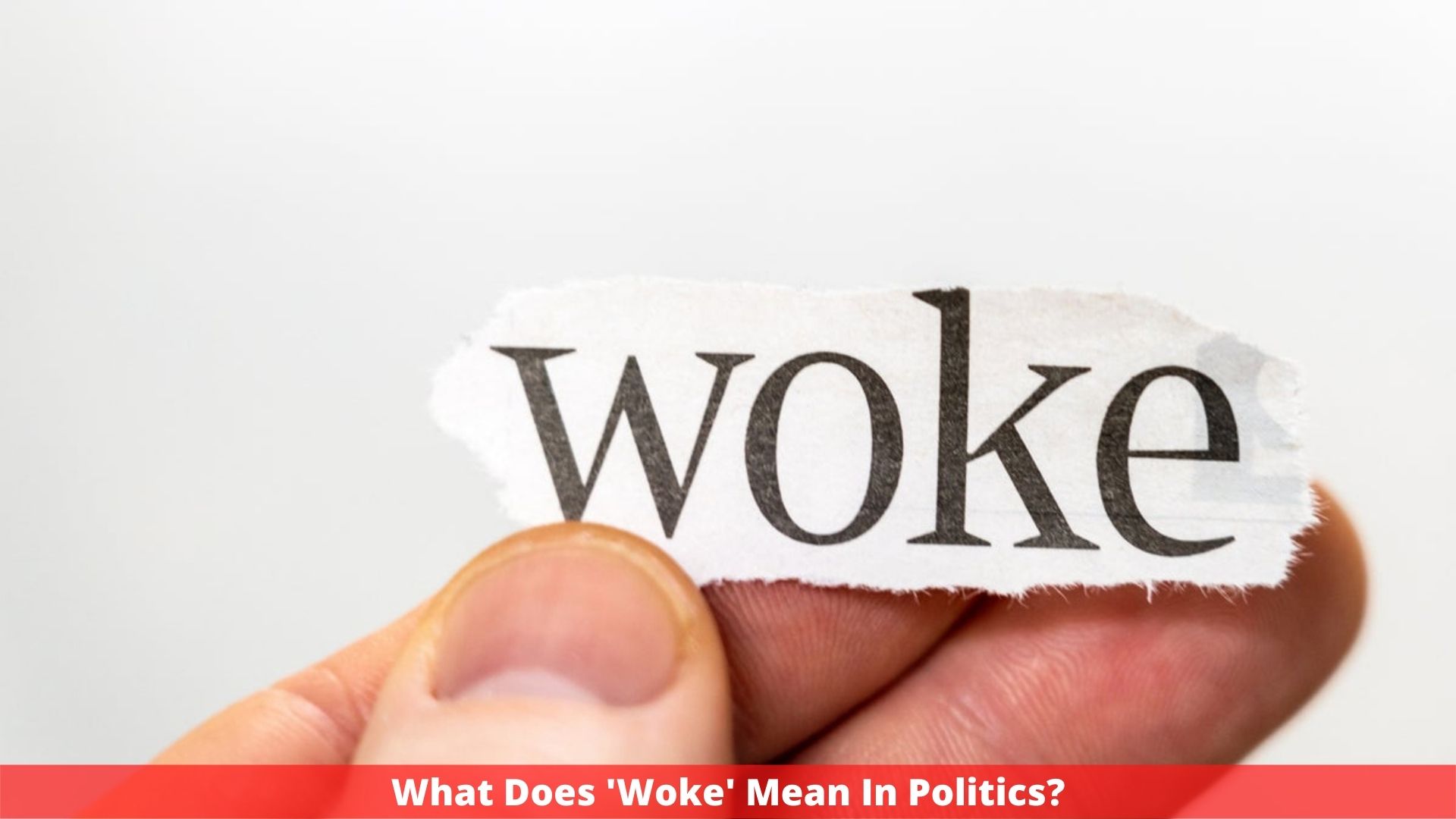In 2017, the word “woke” was formally introduced to the lexicon, and it refers to being aware of sensitive social issues such as racism.
Many of today’s most heated political and cultural arguments revolve around the term “awake.” Some people use the phrase “awake” as an insult, while others use it to describe someone who is conscious of societal issues.
Following the inauguration of the new US president, Boris Johnson was asked if Joe Biden is “awake,” with the Prime Minister recognizing “there is nothing wrong with being woke” in a non-committal response.
But what does the phrase actually imply, and why are so many people offended by it?

What Does ‘Woke’ Mean In Politics?
In June 2017, the adjective woke was formally introduced to the Oxford English Dictionary.
“Originally: well-informed, up-to-date,” according to the dictionary. Now, more than ever, be on the lookout for racial or socioeconomic prejudice and injustice.”
“Being woke” is defined as “being conscious… understanding what’s going on in the community (connected to racism and social injustice)” by the Urban Dictionary, which published its initial definition two years before the official dictionary.
To put it another way, it involves being aware of delicate societal issues like racism.
Also Read: Apple CEO Tim Cook does not want you to sideload apps onto your iPhone
What Is The History Of The Term “Woke”?
It used to merely denote the past participle of the verb ‘wake.’ While this has evolved dramatically in recent years, the present definition of the word is not new in the United States.
The New York Times ran an article in 1962 about “words and phrases you could hear today in Harlem,” a neighborhood in New York City’s northern quarter where many African-Americans live.
In an article headlined “If you’re woke, you dig it,” African-American novelist William Melvin Kelley penned the first documented use of the word under its new definition.
In 1972, a character in Barry Beckham’s play Garvey Lives! declares he’ll “remain woke” thanks to the work of pan-Africanist Marcus Garvey, saying, “I’ve been sleeping all my life.” And now that Mr. Garvey has jolted me awake, I intend to stay awake. And I’m going to assist him in awakening other black people.”
When did Black Lives Matter Use It?
The term was popularized by the Black Lives Matter movement, which used the hashtag #staywoke to protest racial injustices across the US.
When unarmed teen Trayvon Martin was killed by neighborhood watch volunteer George Zimmerman in 2012, the word was heavily utilized to promote the movement.
Some have argued that mocking ‘woke’ is inappropriate to its present usage and the problem of racism. Others say the link is obscure.
Also read: The Argyll’s Divorce Controversy – Shocked Britain In The 1960s!

Why Do Some Despise This Term?
It’s become a dismissive word among those who oppose the groups it’s linked with, or who believe the difficulties are overstated. It’s sometimes used to insult or infantilize those who support those movements.
Lawrence Fox re-ignited the debate over the phrase in January of last year when he branded an audience member who called him a “white privileged guy” for claiming he was “bored” by racism charges as a “white privileged male.”
Following that, he accused woke views supporters of being “racist,” telling Julie Hartley-radio Brewer’s show, “The works are intrinsically racist.” Identity politics is a racist ideology.”

